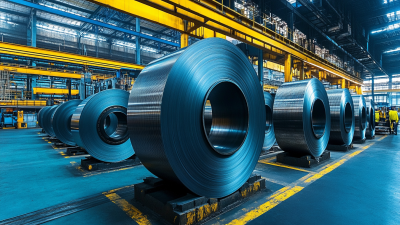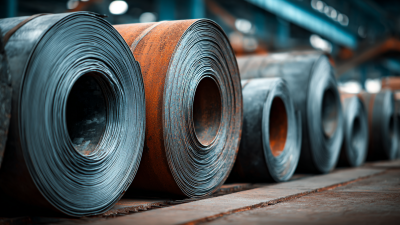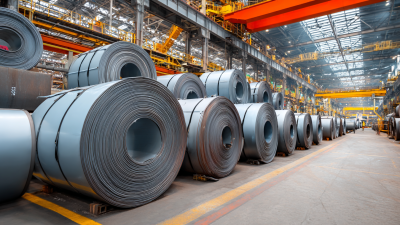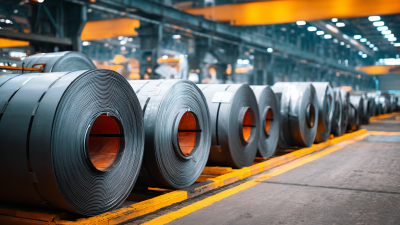When it comes to selecting materials for industrial applications, the decision-making process can often feel overwhelming, especially when it involves specific products like Carbon Steel Sheet Coil. This versatile material is widely used due to its strength, durability, and cost-effectiveness, making it a top choice for a variety of manufacturing and construction needs.
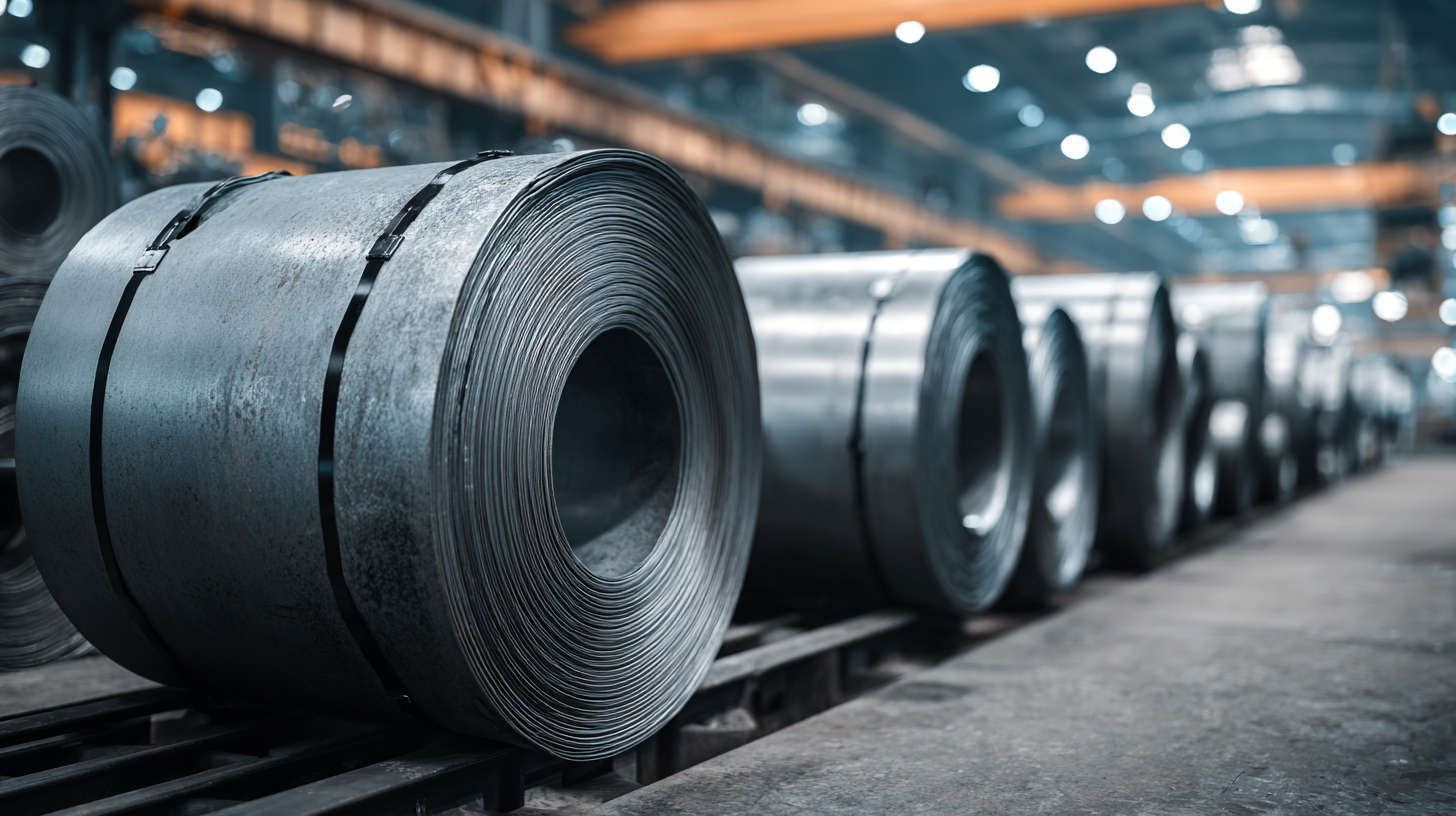
However, choosing the right Carbon Steel Sheet Coil requires careful consideration of several key factors, including thickness, grade, surface finish, and intended application. In this blog, we will delve into essential insights and data that can guide you in making informed decisions, ensuring that you select the most suitable Carbon Steel Sheet Coil to meet your specific industrial requirements.
By understanding the critical aspects of this material, you can optimize your projects and achieve desired outcomes effectively.
When selecting carbon steel sheet coils for industrial applications, several key factors must be carefully evaluated to ensure optimal performance and sustainability. First, consider the mechanical properties such as tensile strength, yield strength, and ductility. These characteristics determine how the material will behave under different loads and conditions, which is crucial for the longevity of the end product. Furthermore, understanding the specific requirements of your application—be it automotive, construction, or manufacturing—is essential for making an informed choice.
Another important aspect to weigh is the environmental impact of the materials used. Recent discussions have highlighted the significance of life cycle assessments (LCA) in energy-intensive industries such as steel. This methodology provides insights into the environmental footprint associated with the production, use, and disposal of carbon steel sheet coils. By incorporating LCA data into your decision-making process, you can select materials that not only meet industrial standards but also align with sustainability goals, reducing the overall impact on the environment.
| Steel Grade | Thickness (mm) | Width (mm) | Length (mm) | Tensile Strength (MPa) | Yield Strength (MPa) | Elongation (%) | Applications |
|---|---|---|---|---|---|---|---|
| S235JR | 1.5 | 1250 | 3000 | 370 | 235 | 26 | Construction, General Steel Work |
| S355JR | 3.0 | 1500 | 4000 | 470 | 355 | 22 | Structural Applications, Heavy Machinery |
| ST37-2 | 2.0 | 1000 | 2500 | 360 | 235 | 28 | Automotive Parts, Mechanical Engineering |
| S460NL | 4.0 | 2000 | 6000 | 550 | 460 | 20 | Bridge Construction, Container Construction |
When selecting the right carbon steel sheet coil for industrial applications, understanding the various grades and their properties is crucial. Carbon steel is classified into different grades based on the amount of carbon and other alloying elements it contains, which significantly influences its mechanical properties. For instance, low carbon steel, with a carbon content of 0.05% to 0.25%, is known for its excellent ductility and weldability, making it suitable for applications such as automotive body parts and structural components. In contrast, high carbon steel, which contains 0.60% to 1.00% carbon, exhibits enhanced hardness and strength, ideal for manufacturing tools and high-stress components.
According to a recent report by the World Steel Association, the demand for carbon steel is expected to grow by approximately 3% annually in the coming years. This increase highlights the importance of understanding specific property requirements when selecting carbon steel sheet coils. For example, the yield strength of a medium-carbon steel can range between 250 to 500 MPa, depending on the heat treatment applied. Industrial applications often require precise specifications; selecting the right grade can directly affect durability and performance, making it essential to refer to detailed mechanical property data when making your choice.
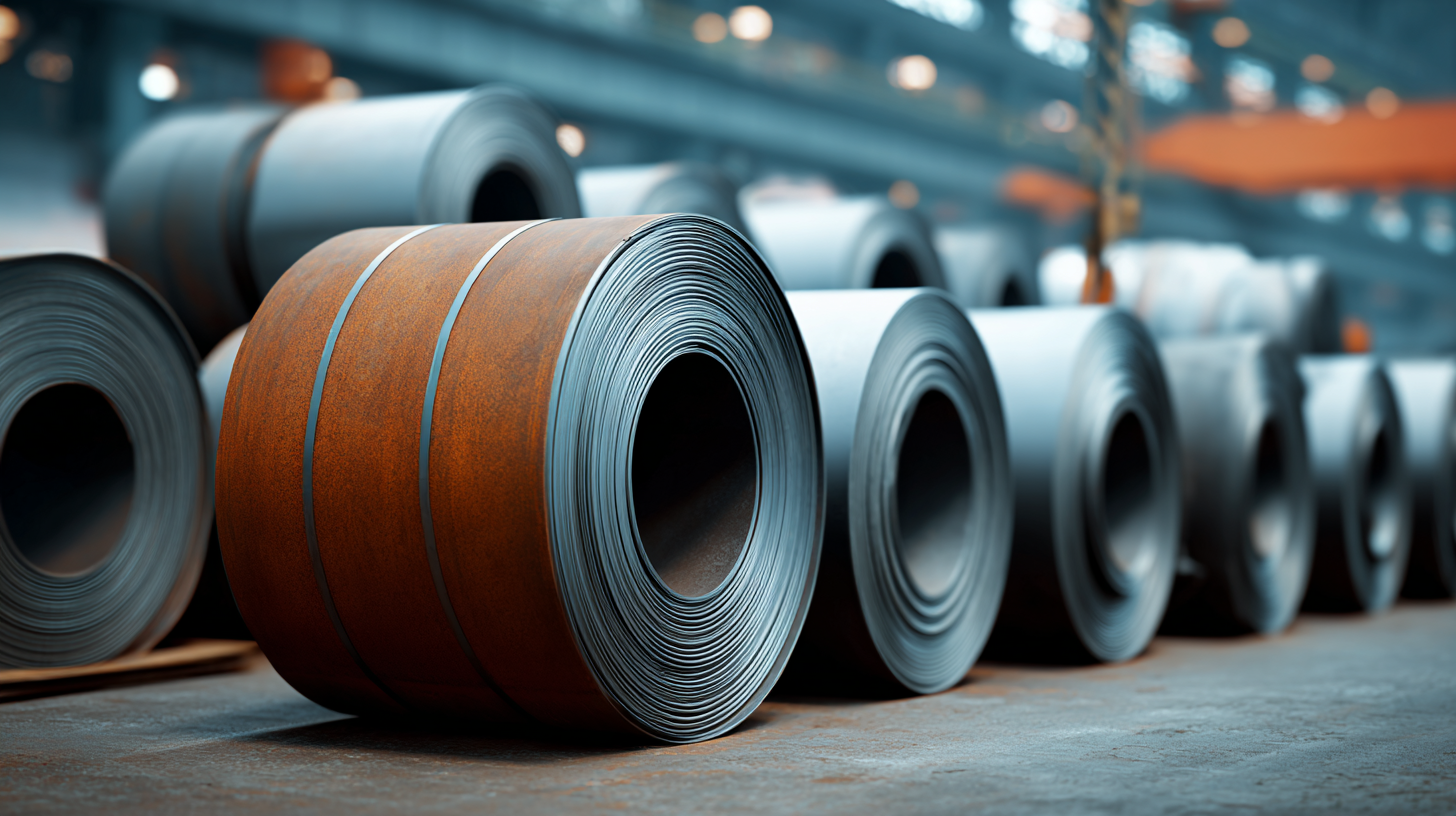
When selecting the right carbon steel sheet coil for industrial applications, understanding the relevant industry standards and specifications is crucial. Various organizations, such as the American Society for Testing and Materials (ASTM) and the International Organization for Standardization (ISO), provide guidelines that dictate the properties and performance of carbon steel. For instance, ASTM A1011 is a widely recognized specification that covers hot-rolled carbon steel sheet and strip for commercial and industrial applications. According to a report by MarketsandMarkets, the global carbon steel market is anticipated to reach $980 billion by 2027, underlining the importance of adhering to these standards to ensure material quality and compliance.
In addition to ASTM and ISO standards, consideration must also be given to specific mechanical properties. The yield strength, tensile strength, and ductility defined in these specifications are essential for determining suitability for applications like automotive manufacturing or construction. For example, carbon steel with a yield strength of 250 MPa up to 700 MPa is often required in structural applications, as highlighted in a study conducted by Grand View Research. Making informed choices based on these specifications will help ensure optimal performance and longevity of carbon steel products in demanding industrial environments.
When it comes to purchasing carbon steel sheet coils for industrial applications, balancing quality and price is essential for maximizing value. Recent data from the Steel Institute indicates that the global demand for carbon steel sheets is projected to grow at a CAGR of 4.2% through 2026, highlighting the need for buyers to consider cost-effectiveness without compromising on quality. In particular, variations in thickness, yield strength, and coating can significantly influence pricing. For instance, high-strength carbon steel coils can be priced up to 20% higher than standard options, largely due to their enhanced durability and performance characteristics.
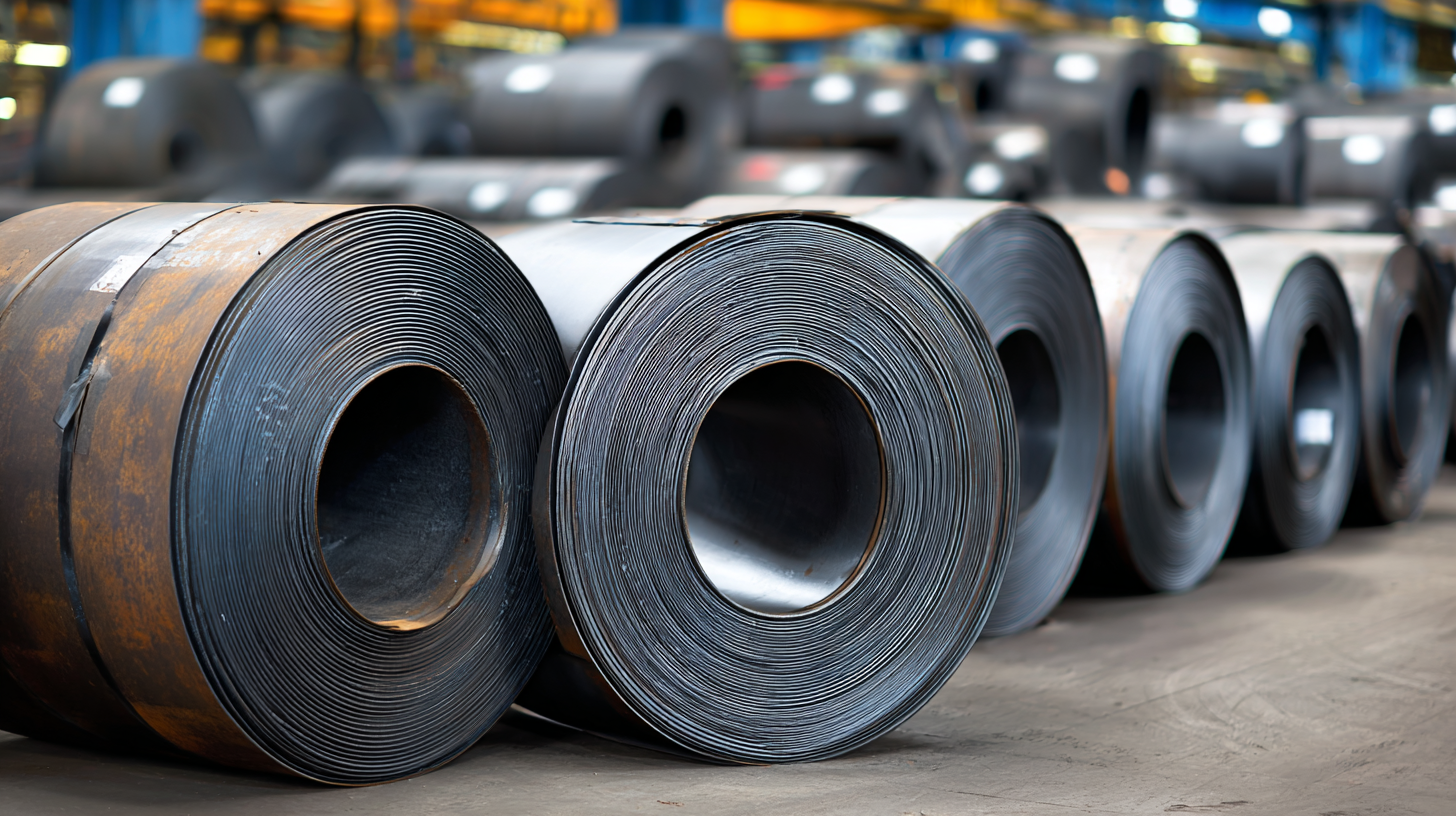
A comprehensive cost analysis should also take into account the total lifecycle costs associated with carbon steel products. According to a report by MarketsandMarkets, approximately 30% of the total cost in industrial applications derives from maintenance and operational inefficiencies linked to lower-quality materials. Investing in higher-quality carbon steel sheet coils may lead to reduced maintenance needs and increased longevity, ultimately providing a better return on investment. Buyers must weigh the initial costs against potential long-term savings, ensuring they select the right product that aligns both with budget constraints and performance requirements.
The dynamics of the carbon steel sector are being significantly shaped by evolving market trends, particularly within the automotive and manufacturing industries. According to recent projections, the global automotive steel wheel market is expected to reach $5.4 billion by 2025, escalating to approximately $7.85 billion by 2033, demonstrating a compound annual growth rate (CAGR) of 4.8%. This growth underscores the increasing demand for high-performance materials such as carbon steel, which is pivotal in the production of durable automotive components.
Furthermore, the stainless steel pipe market is also set for substantial expansion, with its size anticipated to grow from $39.9 billion in 2024 to $59.81 billion by 2033, reflecting a CAGR of 4.6%. This demand is driven by applications in various sectors, including construction and infrastructure, where corrosion resistance and strength are critical. Such insights highlight the importance of understanding supply and demand dynamics to effectively navigate the carbon steel market and make informed decisions regarding material selection for industrial applications.
The metal forging industry is rapidly advancing, propelled by technological innovations and a growing emphasis on sustainability. As businesses adapt to new manufacturing practices and environmental considerations, the demand for quality metal components, including carbon steel sheets, is poised to increase, affirming the sector's pivotal role in meeting future industrial needs.


